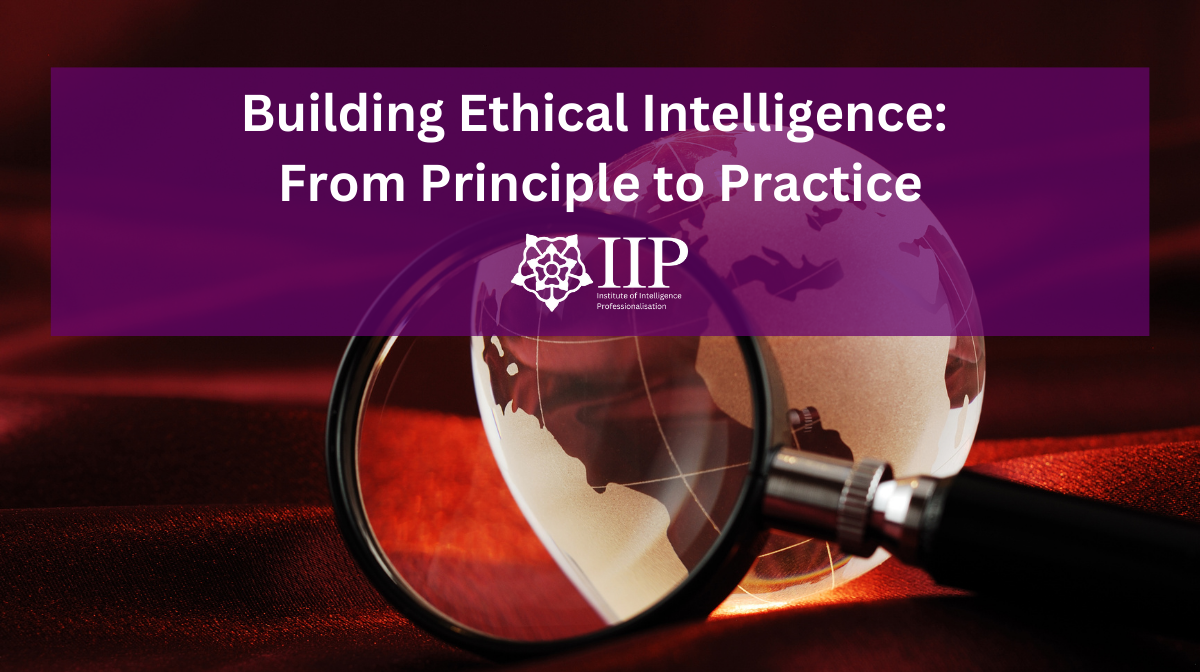
Building Ethical Intelligence: From Principle to Practice
In our first article on ethics in intelligence, we highlighted that professional credibility relies as much on sound decision-making as it does on technical skill. Oversight and compliance frameworks play a role, but the quality of outcomes often comes down to the daily judgement calls of professionals.
Why Ethics Matters in Practice
Intelligence decisions shape people’s rights, community safety, and trust in institutions. A single report can guide national policy. A collection request can affect individual privacy. An operational call can change how communities see security organisations.
These choices are often made with limited time and incomplete information. That makes it essential for professionals to have simple, reliable ways to check that what they are doing is necessary, proportionate, and defensible.
Moving Beyond Stated Values
Values such as respect, integrity, accountability, empowerment, and collaboration provide the foundation. But they only make a difference if they can be applied in real situations.
Analysts need clear methods to show confidence levels and caveats. Collectors need tools that tie activity to a defined purpose and prevent unnecessary scope. Team leads need practical ways to manage dissent and record decisions. Executives need systems that allow them to stand by decisions even as circumstances change.
Launching the Ethical Intelligence Series
To help meet this need, the Institute for Intelligence Professionalisation is starting a new series: Ethical Intelligence. The series is written by Roseleen Woodman, an intelligence and security professional with over fifteen years of experience in the Army, state government, and private industry.
Roseleen’s focus is ethical leadership, insider-risk governance, and practical tools that help teams turn values into habits. She has designed the series to share the methods she wished she had earlier in her career, approaches that hold up under pressure and make accountability easier.
By starting with an introduction to both the series and its author, this week’s article sets the foundation for what follows. It explains why ethics must be part of daily work, and how practical routines can support that goal.
Strengthening Professional Standards
Because much intelligence work happens out of public view, visible routines that embed ethics into daily practice are an important part of maintaining trust. They also help professionals make decisions they can stand behind, even when pressure is high and information is incomplete.
Invitation to Engage
The Ethical Intelligence series will be published every second Thursday. Each piece will outline a small, practical routine that professionals can test and adapt.
We invite readers to try these approaches, share what they learn, and suggest improvements. Professional standards are strongest when they are developed and tested across the community.
At IIP, our goal is to support intelligence professionals with both the skills of the trade and the ethical practices that make those skills worthy of trust.

